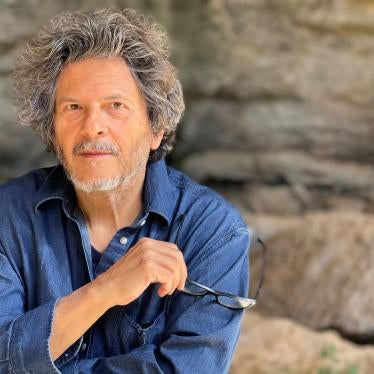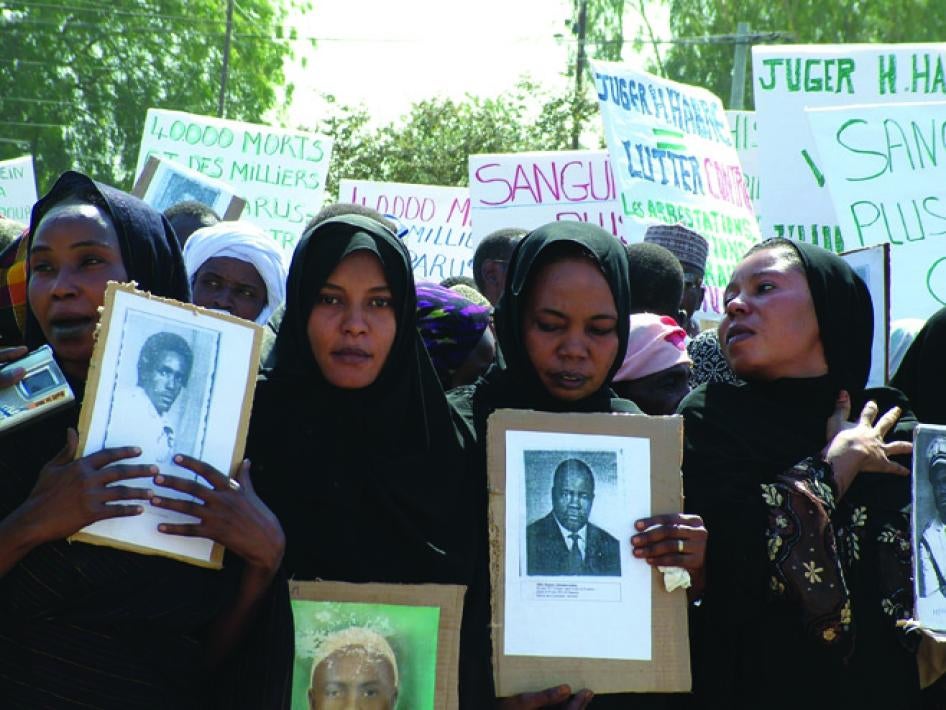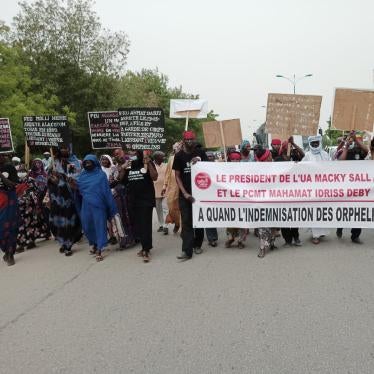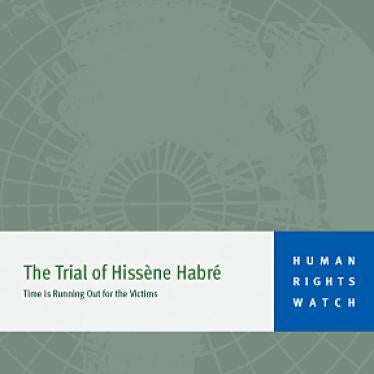A special court in Senegal convicted Hissène Habré, the former president of Chad, for atrocity crimes on May 30, and sentenced him to life in prison. It was the first time that the courts of one country had prosecuted the former ruler of another for alleged human rights crimes. It was also the first time in a human rights trial that a former ruler was found to have personally committed rape.
Most important for the future, however, the verdict was the result of a 25-year campaign by Habré’s victims and their supporters. They improbably succeeded in creating the political conditions to bring Habré to justice in Africa, with the support of the African Union.
The role of the survivors as protagonists permeated the case from inception to verdict. This made the campaign diplomatically powerful and politically appealing, and the result satisfying for the victims’ groups and Chadians in general. The model they created is potentially accessible to other victims seeking justice.
The case took shape in the mind of Souleymane Guengueng, a modest civil servant who watched dozens of his cell mates succumb to torture and disease in Habré’s prisons, and promised that if he ever got out of jail alive, he would bring his tormentors to justice. When Habré was overthrown in 1990 and fled to Senegal, Guengueng used his charm to persuade still-frightened victims to join him.
Nine years later, inspired by the London arrest of the former Chilean dictator Augusto Pinochet, the victims linked up with Human Rights Watch. We helped them file the first case in Senegal in 2000, and then face every hurdle in what the Toronto Globe and Mail would call “one of the world’s most patient and tenacious campaigns for justice”.
When the case was thrown out in Senegal, after political interference by the new president, Abdoulaye Wade, the victims filed a case in Belgium under that country’s long-arm universal jurisdiction statute to set up a possible extradition. When President Wade threatened to send Habré to a safer haven, they won a ruling from the United Nations Committee against Torture to keep him in Senegal until he could be extradited. When the generous Belgian law was repealed under United States pressure, the survivors’ personal lobbying with Belgian politicians earned a “grandfather clause” for the case to continue, and created a reservoir of support that spurred the Belgian government later to take the matter to the International Court of Justice, which in 2012 ordered Senegal to prosecute Habré if it did not extradite him.
Victims as the driving force
In the meantime, the Chadian victims went to Senegal time and again to plead their case to the public, the press, and politicians, including opposition leader Macky Sall, who became president in 2012 and set the trial in motion.
The visibility of the real victims made it impossible for Habré to present himself as the victim, though not for lack of trying. After Habré was arrested in 2013, his wife wrote a teary open letter to President Sall complaining that the arrest had disrupted their family life. Two days later, Khaltouma Daba, a Chadian widow, responded that her family life had been shattered when her husband was taken away by Habré’s political police, and that at least Mrs. Habré knew where her husband was. Daba’s picture was all over the Senegalese press.
When Habré’s lawyers announced that he did not want to appear in court – the judge brought him in by force – Guengueng mocked Habré in the Senegalese press, asking if the once-omnipotent dictator was now afraid to look the survivors in the eyes and listen to their testimony.
In Senegal and Chad, the Habré case is associated with survivors like Guengueng and Clement Abaifouta the president of the victims’ association, who had to bury his cell mates in mass graves. The victims’ courageous lawyer, Jacqueline Moudeina, who survived an assassination attempt and has won many international prizes, is the face of the case in Chad. This helped created a positive dynamic, with victims widely recognized as the driving force behind the prosecution.
The victims’ role also had implications for how the case was structured. From the very beginning, the victims insisted that the dossier include crimes committed against each of Chad’s victimized ethnic groups. While ultimately it was the Special Chambers’ prosecutor and investigating judges who determined the contours of the trial, they relied on the narrative the victims had woven over the decades. Listening to judge read the verdict in court on May 30, I was struck at how it could have been written by Jacqueline Moudeina 15 years ago.
Critical evidence was also developed by non-governmental groups. In 2001, I uncovered thousands of regime documents which provided a road map to the repression, and became the backbone of the case. The Human Rights Data Analysis Group identified 12,321 victims of abuse in these papers, including 1,208 killed or died in jail.
Even the choice among the many survivors of who would testify at the trial was made in informal consultation with the victims, who participated in the trial as civil parties, with their lawyers, led by Moudeina, questioning witnesses and asking for reparations. Thierry Cruvellier, a frequent critic of international courts, noted glowingly in the New York Times that “[n]ever in a trial for mass crimes have the victims’ voices been so dominant.”
At the victims’ association here in Chad, the celebrations over the verdict have been marked by a deserved sense of accomplishment. During the trial, which was televised each day, thousands of Chadians watched their former president in the dock – put there not by the current Chadian government, which is the way things usually happen in Chad, but because a group of brave Chadians like Guengueng and Moudeina had fought to get him there. In summing up the message of the trial, Moudeina told me: “We have shown the world that victims can bring a dictator to justice.” It’s an example that others can try to repeat.









